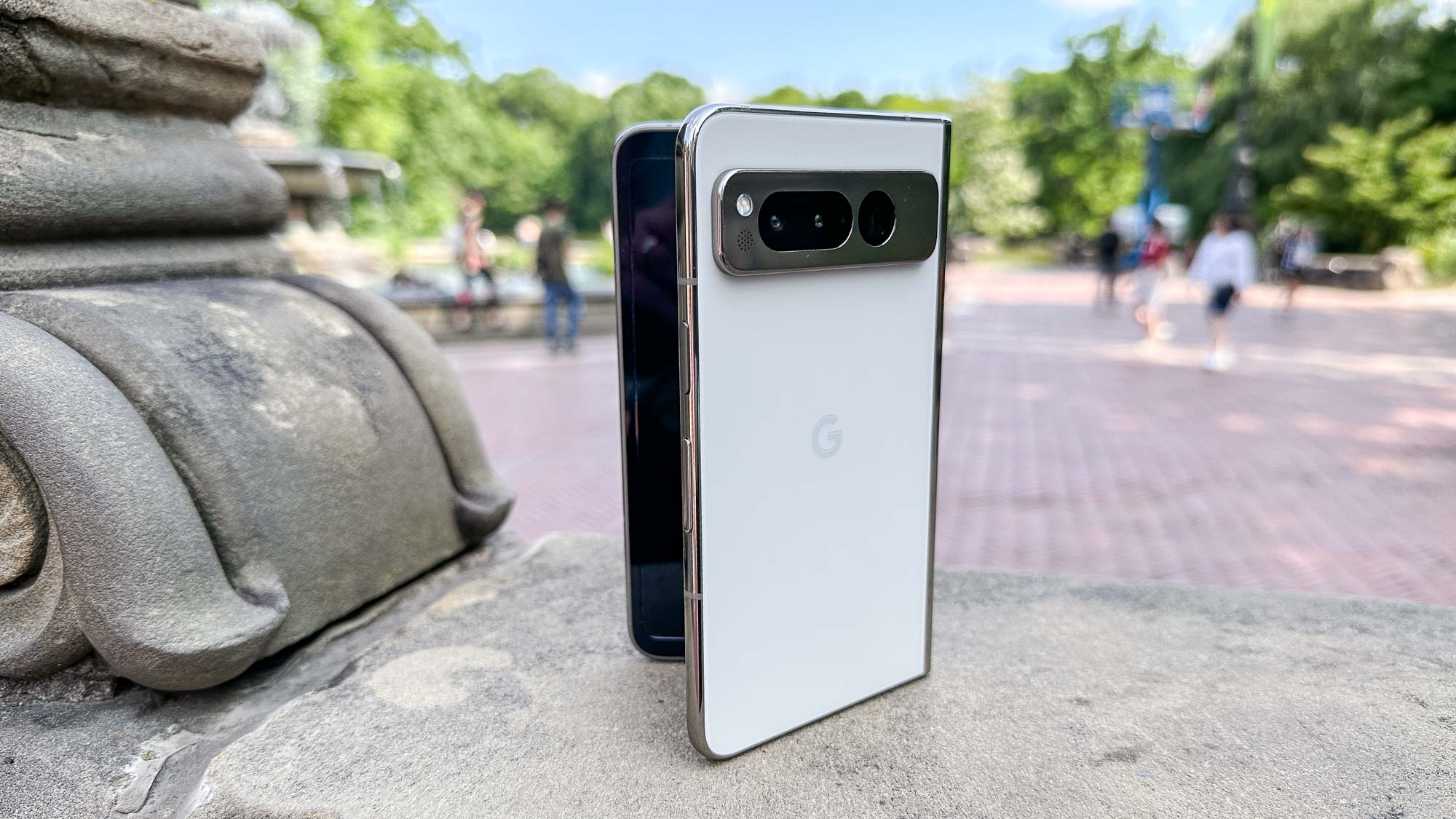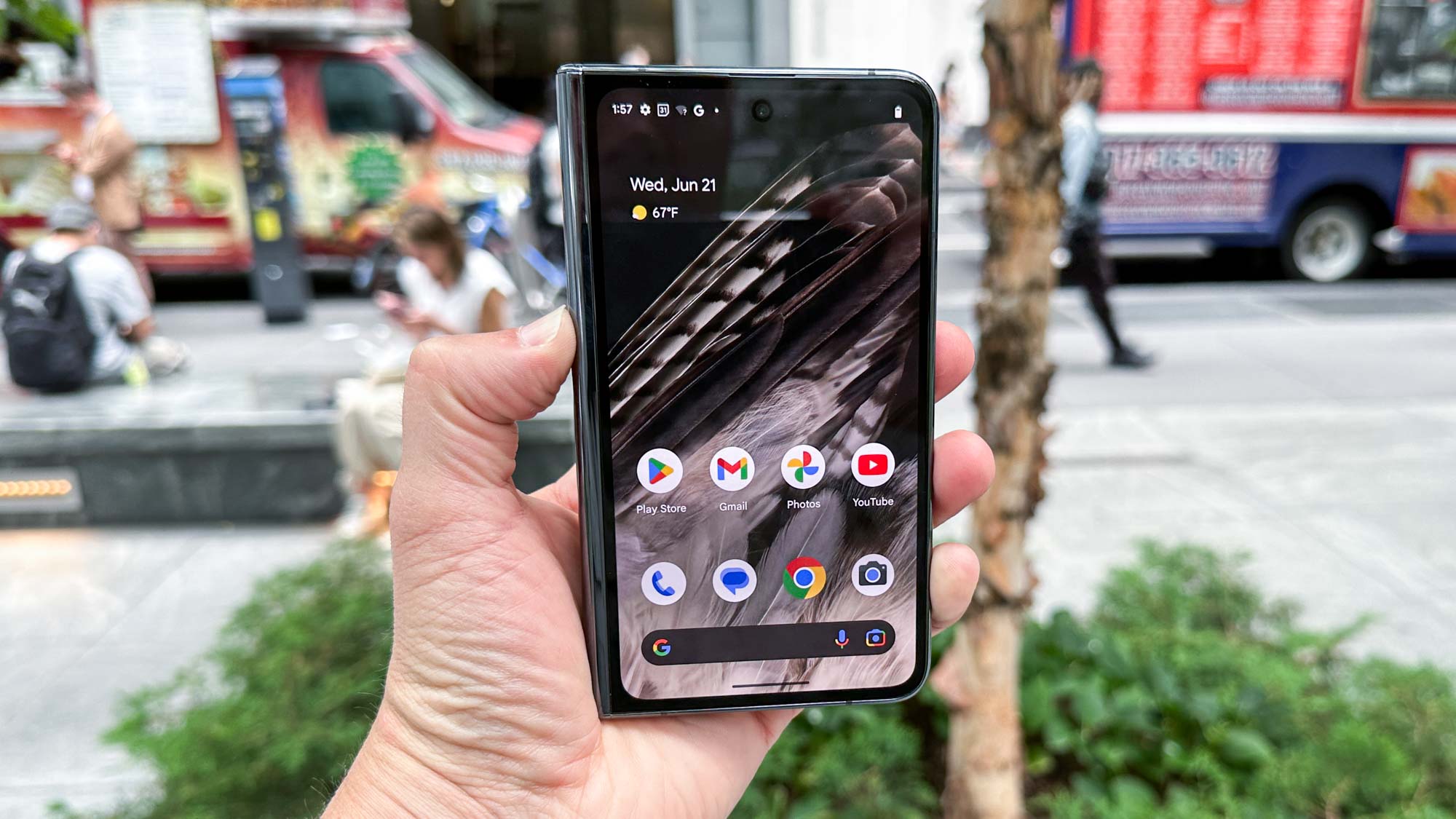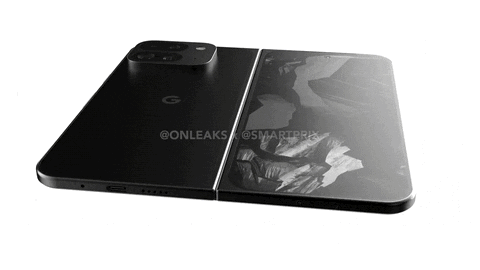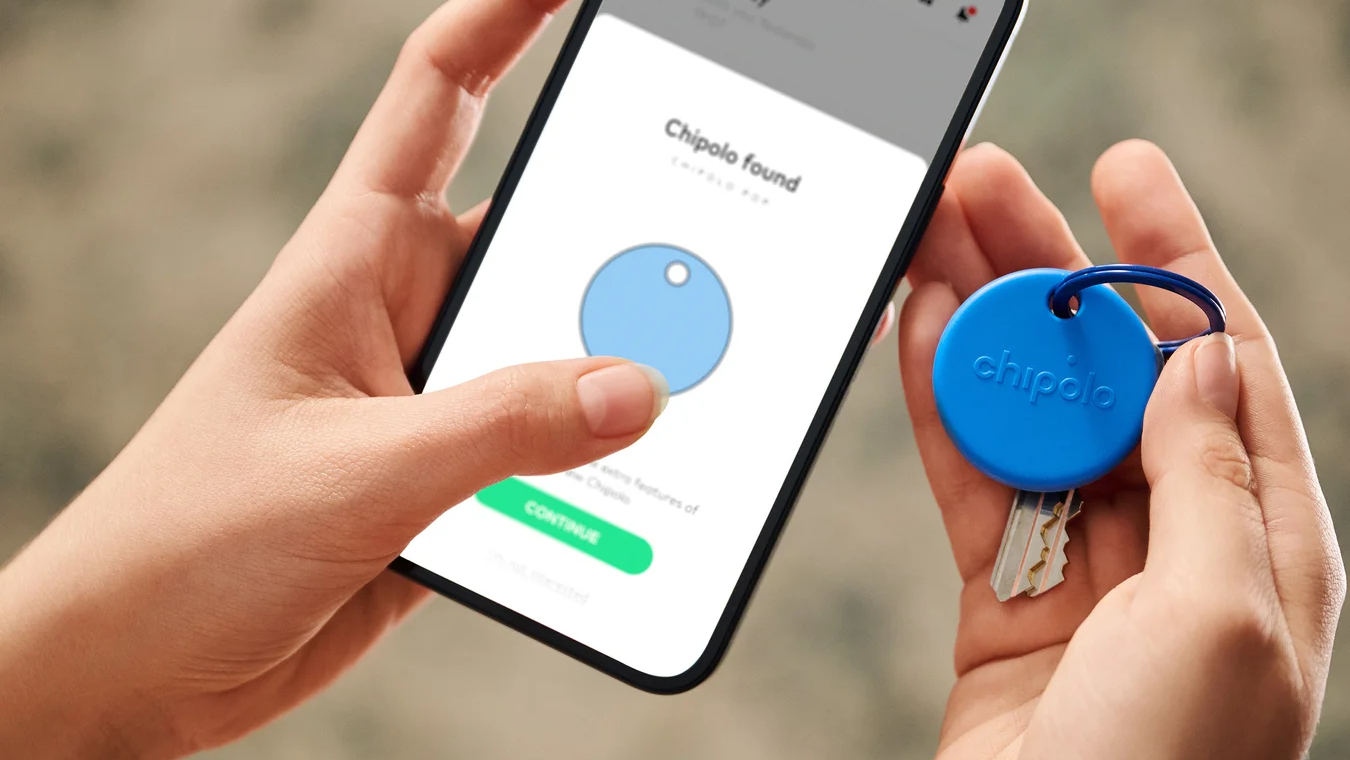Google Pixel Fold 2 release timing could be key to beating the Galaxy Z Fold 6
A fall release means new AI features for Google's foldable

The Google Pixel 8a wasn't the only hardware absentee at Google I/O earlier this month. While it announced the midrange a week ahead of Google I/O, Google didn't even acknowledge another Pixel device that's due an upgrade — the Pixel Fold 2.
You might have thought the Pixel Fold 2 would have appeared at Google I/O. After all, the original Pixel Fold made its debut at the developer conference the previous year. But from the sound of it, Google has other plans for its foldable phone, and they don't involve a summer release.
Instead, rumors suggest that the Pixel Fold is getting assimilated in the regular flagship Pixel lineup, meaning it will likely arrive in the fall alongside the new Pixel 9 releases. When it does show up, the Fold could do so with a new name — rumors suggest the next version will be called the Pixel 9 Pro Fold.
Assuming these rumors are true, Google's new launch window and potentially new name for its foldable say a lot about its plans for the next Pixel Fold and how the device maker hopes to compete with the best foldable phones out there.
Google's first foldable phone

For a first-time attempt to build a foldable phone, the Pixel Fold made a strong impression last year. There weren't the build quality issues we've seen on other first-time foldables, and Google even managed to introduce a few features that gave it a leg up on the Galaxy Z Fold 4, Samsung's leading foldable device at the time.
Specifically, the Pixel Fold gave us a wider cover display then we were used to. The wider aspect ratio on the Pixel Fold — 17.4:9 on that outer 5.8-inch screen — makes it easier to use apps on the outer display, and it's more of a pleasure to type on that screen than it is on the Galaxy Z Fold 5's 6.2-inch cover screen and its 23.1:9 aspect ratio.
The Pixel Fold shines in other ways. For starters, it's very thin at just 0.2 inches when open. (That compares to 0.24 inches on the Galaxy Z Fold 5.) Google also did a good job with multitasking features on its foldable phone, and the camera performance was very strong, as you'd expect from a Google handset.
The Galaxy Z Fold 5 was too far along in development at the time of the Pixel Fold's release to offer much in the way of a response to Google entering the foldable business. But that phone did introduce a thinner and lighter design with its new Flex hinge, helping the Z Fold 6 to stand up better than its predecessor to the Pixel Fold. A more powerful Snapdragon 8 Gen 2 chipset helped as well.
But it's the Galaxy Z Fold 6 currently in development for a likely summer unveiling that figures to offer a full-throated response to the Pixel Fold. Rumors suggest Samsung is changing the look of the Fold's cover screen, making it wider than before. If so, it would address one of the biggest shortcomings of Samsung's device in a Galaxy Z Fold 5 vs. Pixel Fold comparison.
What's next for the Pixel Fold

Now it's Google's turn to respond to a competitor with its foldable phone. And the apparent move of the Pixel Fold 2 launch away from the summer is the biggest way that Google can make sure the new model can compete with the top options.
That's because a shift to a fall launch would allow the next Pixel Fold to feature the latest Tensor system-on-chip that Google will also use in this year's Pixel flagships. For the Pixel 9 family, that will mean the Tensor G4, rather than the Tensor G3 powering Google's current phones, like the just released Pixel 8a.
From Google's perspective, it's an easier sell to argue that your foldable can match Samsung's best if it's powered by a more up-to-date chipset, as opposed to the same silicon found inside a $499 midrange phone. More to the point, though, using the Tensor G4 means that the next Galaxy Fold will also have access to the updated AI-powered features made possible by the latest Tensor.
AI is quickly becoming key in the smartphone world, as Samsung proves with its device releases this year. The Galaxy Unpacked event that kicked off 2024 made Galaxy AI features the focus of the Galaxy S24 release. Not only are those capabilities already available on the Galaxy Z Fold 5 through a software update, we'd expect the Galaxy Z Fold 6 launch to introduce other AI features to the mix. That's going to ratchet up pressure on Google to keep pace with its phone, hence the desire to use more up-to-date silicon like the Tensor G4.
There's another advantage to waiting for the next Tensor chipset. Presumably, the Tensor G4 improves power management features over the Tensor G3. The original Pixel Fold powered by a Tensor G2 and a 4,821 mAh lasted for a good if not great time on our battery test, so chances are strong that Google is betting a G4-powered device can last even longer.
The rumored name change to the Pixel 9 Pro Fold likely reflects a desire to emphasize that anything the Pixel 9 can do, will be available on the foldable version of the phone. The lengthy name may be unwieldy, but it also differentiates the foldable device from the two Pixel 9 Pro models — yes, a small one and a large one — expected to appear in the fall. \\
Google Pixel 9 Pro Fold outlook
It's been fairly quiet on the Pixel Fold rumor front, as details out of Google had been largely focused on the Pixel 8a prior to the foldable's launch. And all the other upcoming Pixel models seems to be getting more attention these days.
But that could give you soem info about features coming Google's foldable, since any rumored Pixel 9 features are likely to be part of the Pixel 9 Pro Fold. Barring any Fold-specific rumors, that could be our best source of information on Google's plans heading into the fall.
More from Tom's Guide
Sign up to get the BEST of Tom's Guide direct to your inbox.
Get instant access to breaking news, the hottest reviews, great deals and helpful tips.
Philip Michaels is a Managing Editor at Tom's Guide. He's been covering personal technology since 1999 and was in the building when Steve Jobs showed off the iPhone for the first time. He's been evaluating smartphones since that first iPhone debuted in 2007, and he's been following phone carriers and smartphone plans since 2015. He has strong opinions about Apple, the Oakland Athletics, old movies and proper butchery techniques. Follow him at @PhilipMichaels.
-
ZeroChill Don't keep rewarding Google for mediocre efforts. Stop buying these until they start putting their G5 chip into stuff and prove that it's good and stable.Reply

